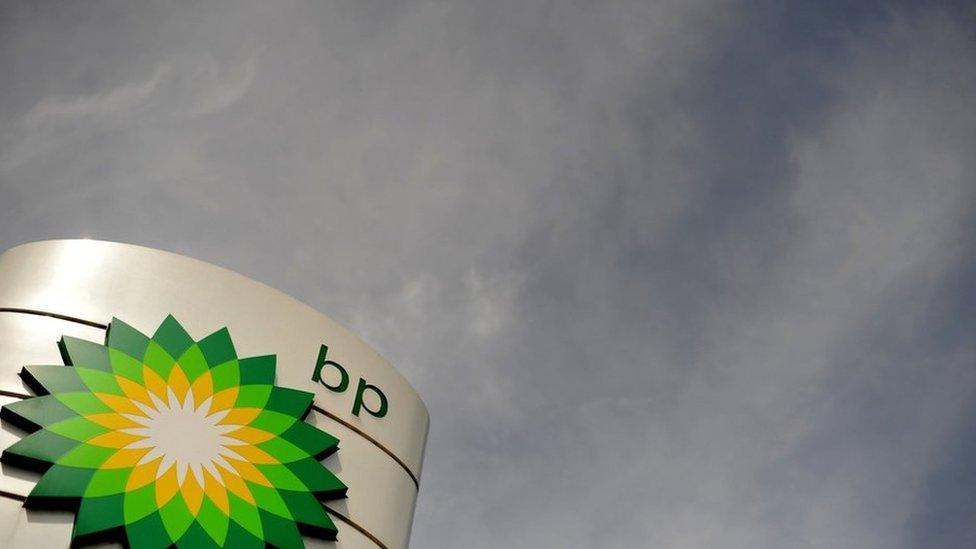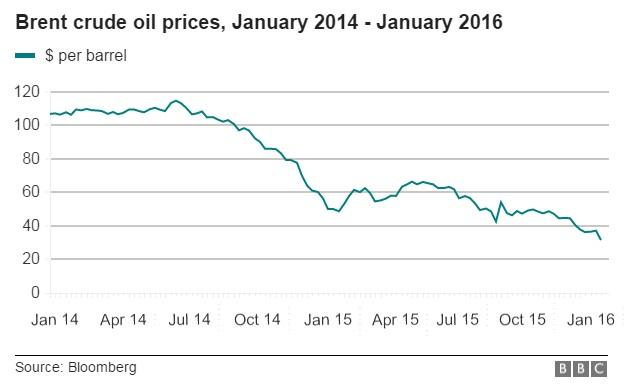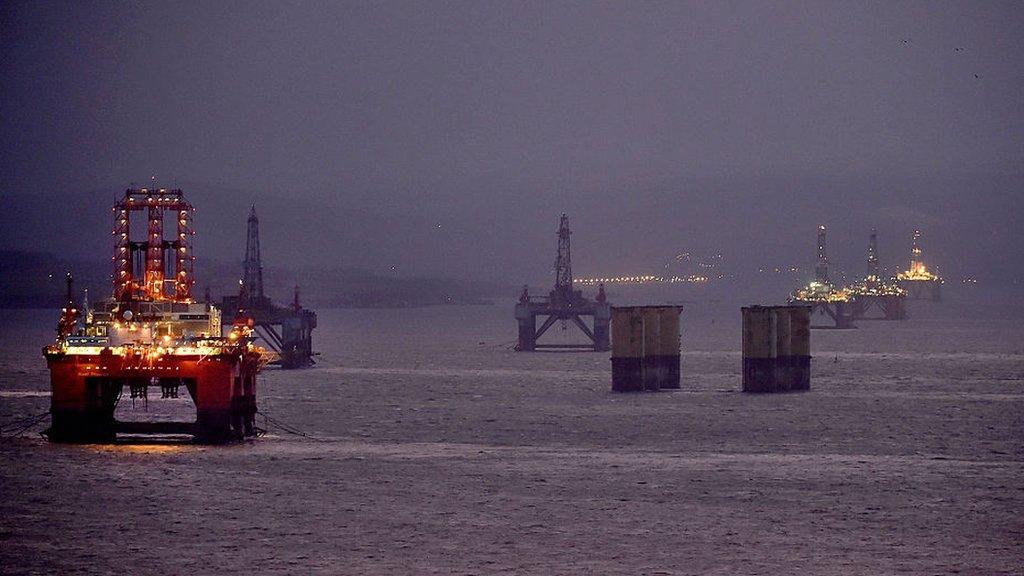BP shares plunge as profits halve
- Published

Shares in BP have ended the day almost 9% lower after it reported that annual profits had more than halved.
The oil giant said its profits had fallen by 51% to $5.9bn (£4.1bn), compared with $12.1bn in 2014 following a dramatic slide in oil prices.
BP was the biggest faller on the FTSE 100, falling 35.9p to 331p after announcing its biggest loss for more than two decades.
Oil prices fell sharply on Tuesday, with Brent crude down 5.3% to $32.42.
BP's underlying fourth-quarter profits sank to $196m, compared with $2.2bn for the same period in 2014 and far worse than analysts had expected.
A further 3,000 job cuts, external were also announced by BP on Tuesday.
Last year, it said 4,000 jobs would go in its upstream division as part of a $2.5bn restructuring programme.
BP said its upstream business, which covers exploration and production, slumped to a $728m loss in the final quarter.
The latest reduction of up to 3,000 jobs by the end of 2017 affects staff and contractors in its downstream segment.
This refers to its refined oil products, such as fuel, lubricants and petrochemicals, that are used to make products such as paint and plastic bottles.

Progress hailed
Bob Dudley, BP chief executive, said the company was making good progress in managing and lowering costs and capital spending.
"We are continuing to move rapidly to adapt and rebalance BP for the changing environment," he added.
Oil prices have been hit by the slowing global economy, the strong US dollar and oversupply.
BP's dividend will remain unchanged at 10 cents a share for the quarter.
Sanjiv Shah, chief investment officer at Sun Global Investments, said: "The short term looks difficult but shareholders should be encouraged by the fact that a pick-up in prices is expected soon and that BP management are committed to continue paying out current dividend levels."

Analysis: Kamal Ahmed, economics editor
In the final three months of 2014, the cost of a barrel of Brent crude was $77. In the final three months of 2015, it was $44.
Today it is $34. That is the background to today's results from BP.
Bob Dudley, BP's chief executive, told me two weeks ago that he expected the oil price to rise as high as$50-60 a barrel by the end of the year, as the oil majors desperately cut production and demand grows from China and the US.
Global supply and demand, at least from his company's point of view, will be in better balance, he argued.
It is clear from the strain the low oil price is putting on BP that another year of falling prices will mean yet more job losses in both the upstream (oil exploration and production, including the North Sea) and downstream (refining and sale of fuel) businesses.
Both of the main engines of the business are now spluttering and puffing out uncomfortable-looking black smoke.
That will put fresh pressure on BP's dividend, vital to our savings and pension funds. For the moment, BP says it is wholly committed to maintaining the payments.

Michael Hewson, chief market analyst at CMC Markets, said BP faced hard choices: "With average oil prices still trading at multi-year lows so far this year, the question now needs to be asked, how long can BP sustain the dividend at current levels without an imminent pick-up in oil prices?
"How many more jobs will BP need to cut from its already reduced 80,000 workforce in the coming months in order to sustain its payout against a backdrop of a possible ratings downgrade, and lower energy prices for longer?"
BP's results are the latest in a round of weak fourth-quarter results in the sector.
Last week, Chevron announced its first quarterly loss in more than 13 years.
Shell, which reports its fourth-quarter and full-year results on Thursday, has warned in a trading statement that its underlying profits could be halved.
BP's shares ended trading 8.7% lower at 335.1p.
- Published19 February 2016
